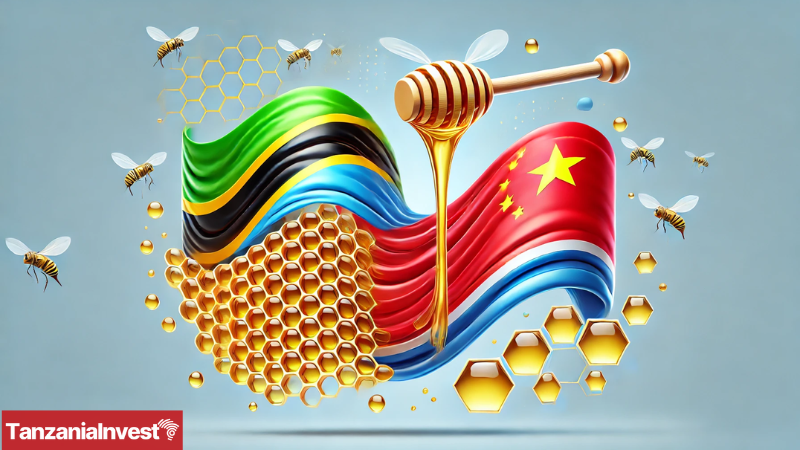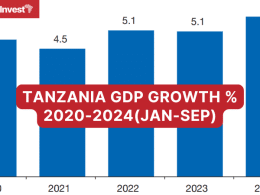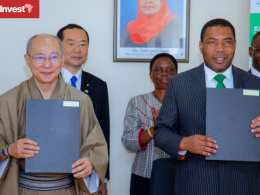Tanzania has successfully sent its inaugural shipment of honey to China, marking a significant milestone in its trade relations with the Asian country.
The shipment, comprising 10 metric tons of honey, departed from Dar es Salaam Port on December 25, 2024. It was procured by East Africa Commercial and Logistics Center (EACLC) Ltd, a Chinese international trade company, and facilitated through its parent company, Weihai Huatan Supply Chain Management Company Ltd.
The honey is expected to reach Weihai Port in China within 27 days.
Speaking at the ceremony, Tanzania’s Minister for Industry and Trade, Dr. Selemani Jafo, emphasized the importance of this milestone, which he said highlights the vast potential of Tanzania’s honey industry in the global market. He also encouraged Tanzanians to seize the opportunity to expand honey production and tap into emerging markets such as China.
Dr. Lisa Wang Xiangyun, Chairperson of EACLC, lauded the quality of Tanzanian honey, stating that it reflects her company’s high standards. “The successful export of this batch of honey not only delivers natural and healthy products to Chinese consumers but also opens up new opportunities for the growth of Tanzania’s honey industry,” she said.
Chen Mingjian, Chinese Ambassador to Tanzania, described the event as a significant milestone in the trade and economic relations between the two countries. She participated in the ceremony alongside Dr. Jafo, with both symbolically closing the container of honey to wish it a smooth journey to China.
Tanzania’s Honey Industry
Tanzania’s honey industry is supported by the country’s natural forests and savannahs, which provide ideal conditions for beekeeping. Over 2 million Tanzanians are involved in the sector, producing approximately 30,000 metric tons of honey annually.
However, the country’s production potential is estimated at 138,000 metric tons, leaving room for significant growth.
In 2022, Tanzania exported approximately 539,942 kilograms of natural honey, valued at around US$1.4 million. The primary export destinations included Germany, the United States, Ireland, the Czech Republic, and the United Arab Emirates.
The ability to export honey to China was secured in August 2024 after Tanzania met China’s stringent quality and safety requirements. The agreement was part of efforts to diversify export markets and promote non-traditional exports.
Tanzanian honey debuted at the 7th China International Import Expo in November 2024, where it was positively received.
China, with an annual honey consumption of approximately 32 million tons, represents a lucrative market for Tanzanian honey, paving the way for future export growth.










